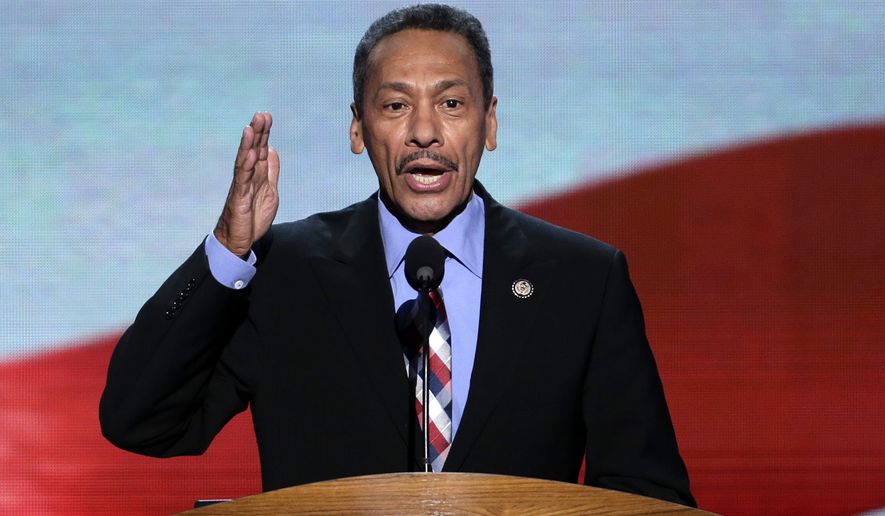Over the objections of the Obama administration and key lawmakers, the CEOs of bailed-out housing giants Fannie Mae and Freddie Mac are getting massive pay raises, courtesy of the regulator appointed by President Obama himself.
Federal Housing Finance Agency (FHFA) Mel Watt defended his decision to approve the pay hikes, which will raise the Fannie and Freddie CEOs’ pay from $600,000 to $4 million, as vital to “promote CEO retention, allow reliable succession planning and ensure the continuity, efficiency and stability” now that both companies have returned to financial health.
But the move sparked anger at both ends of Capitol Hill.
“I understand that Fannie Mae and Freddie Mac want to offer competitive salary and bonus packages to attract and retain talent, but it appears that the FHFA is ready to unilaterally drive [Fannie and Freddie] back to the failed model of private gains and public losses,” said Sen. Bob Corker, the Tennessee Republican who is co-sponsoring bipartisan legislation to overhaul the government’s role in underwriting housing finance.
Senate Committee on Banking, Housing and Urban Affairs Chairman Richard C. Shelby, Alabama Republican, also slammed the move as “inappropriate and irresponsible.”
With the two housing giants having [required] a $188 billion taxpayer bailout in the dark days after the 2008 global financial crash, the pay raises revealed in regulatory filings this week are “just one more reason Congress must act to reform our housing finance system,” Mr. Corker said Wednesday.
The Treasury Department also opposed the decision to approve the pay increases.
The department “urged the agency to reject any increase,” Adam Hodge, a Treasury spokesman, said in a statement. “Treasury has consistently recommended that existing limits on compensation continue.”
Fannie Mae and Freddie Mac, congressionally chartered corporations that purchase mortgage loans from banks and other lenders to provide more liquidity to the housing market, have been political lightning rods for years. Critics say the two exacerbated the financial crisis by distorting the housing finance market and allowing primary lenders to lower standards for favored borrowing groups.
But with both companies returning to profitability in recent days, Fannie and Freddie have also returned more than $225 billion to the federal treasury, helping to lower the federal deficit.
Capped pay
In the wake of the bailout, the compensation for new Fannie CEO Timothy J. Mayopoulos and Freddie Mac head Don Layton was capped at $600,000 a year in 2012. The change revealed this week would return their pay levels to historic levels and make them comparable to what executives are making in the private sector.
Mr. Watt, a former Democratic congressman from North Carolina picked by Mr. Obama for FHFA last year, stood firm on the move despite widespread criticism.
The annual compensation packages of Mr. Mayopoulos and Mr. Layton could increase eightfold from previous annual levels, according to Securities and Exchange Commission (SEC) filings by the housing agencies Wednesday. Mr. Mayopoulos and Mr. Layton will get annual base salaries of $750,000 each, $2.1 million in fixed deferred compensation and $1.2 million in at-risk deferred salary. The packages do not include any bonuses they earn.
The FHFA argues that the higher pay helps retain valuable executives, but Fannie Mae acknowledges that the housing CEOs will still earn less than comparable executives at more than 75 percent of other similar companies in the housing finance industry.
In 2012 the total compensation of the housing executives was $6 million, but their pay was slashed by then-FHFA director Edward DeMarco amid popular outrage in the wake of the massive bailouts. Mr. DeMarco capped their pay at $500,000, arguing that such a restriction was necessary to prevent the destabilization of the agency.
“A sudden and sharp change in pay from these levels would certainly risk a substantial exodus of talent, the best leaving in many instances. A significant increase in safety and soundness risks and in costly operational failures would, in my opinion, be highly likely,” Mr. DeMarco said in 2012.
In 2011, according to The Associated Press, then-Fannie Mae CEO Michael Williams was paid $5.3 million and Edward Haldeman Jr. of Freddie Mac was paid $3.8 million.
The FHFA’s move did get some support — Jacob Gaffney, executive editor of HousingWire and HousingWire.com, wrote in a blog post Wednesday that Mr. Watt was “showing some serious backbone” in approving the compensation changes despite the political risk.
“CEOs who consistently produce positive earnings should be rewarded, not punished,” he wrote. “Neither Mayopoulos or Layton are civil servants and should not get paid as such.”
Last year the Senate proposed legislation to reform the financial housing system to prevent another mortgage crisis, but it failed to garner enough support to pass. Some analysts worry that failure could again put the financial burden on taxpayers as a future crisis may require a $157 billion bailout to save Fannie Mae and Freddie Mac, according to an FHFA stress test conducted in April.
“Our current mortgage finance system — with only private gains and public losses — is unsustainable,” said Virginia Sen. Mark Warner last month. “It is long past time for Congress to fix this flawed business model and enact responsible reforms to our housing finance system.”
The new CEO pay levels, Mr. Warner said Wednesday, “would appear to signal a return to business as usual.”
• Brennan Weiss can be reached at bweiss@washingtontimes.com.




Please read our comment policy before commenting.